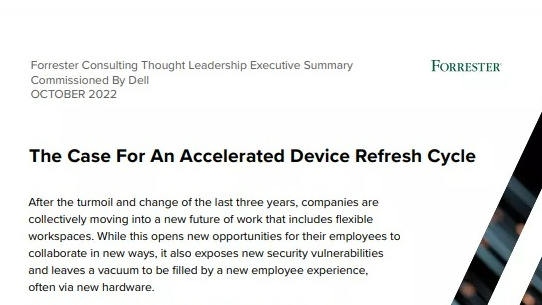Collaboration horror stories
What happens when you get collaboration with colleagues horribly wrong


Collaboration is the watchword for many organisations nowadays. In a knowledge-based economy, shared information can reap greater benefits for an organisation than data sitting around unloved in a silo.
But sometimes collaboration can end up being more of a problem than a help. We look at some examples of what happens when it goes wrong.
Make sure people know who does what
When embarking on a collaborative project, it is important to know who will be doing what.
According to this article in weekly journal Nature, biologist Paul Weldon and chemist Andrew Evans fell out over a scientific project that involved compounds and samples of an acid. The two argued over who owned the samples and how research should progress. It ended with a lawsuit.
The lesson to learn here is to get things in writing before collaboration to ensure people know exactly what they are expected to do. Otherwise, your collaboration can end in disaster.
That's not what we do here
Sign up today and you will receive a free copy of our Future Focus 2025 report - the leading guidance on AI, cybersecurity and other IT challenges as per 700+ senior executives
"Not invented here" is probably the biggest barrier within an organisation to collaboration. When someone in an organisation goes around saying "that's not what we do here" can put up a great big stop sign to new ideas.
Gathering support of colleagues for new ideas and ways of working in the face of opposition can be overcome by using collaborative tools to enable employees to share ideas and thoughts with other colleagues and teams in order to get better feedback from a wider audience.
When fear of failure prevents useful collaboration
People can enter into the spirit of collaboration without realising there is a certain amount of give and take. The fear of being wrong or looking bad when venturing forth an idea can stop employees from being part of a group discussion, even when that employee has great ideas and much expertise to share. Such an issue can be avoided by making a team understand that everyone is wrong from time to time and wrong answers can be as perceptive, of not more so, that the correct one. Collaboration depends on an atmosphere of honesty, conviction and transparency.
Knowledge is power, except when it doesn't help matters
Some managers in organisations like nothing better than to keep things to themselves. It's a way of advancing one's position in some companies. Unfortunately, it is a bad habit that can spiral out of control and spread to other team members who can then shut down all discussion a big no-no for effective collaboration.
In the past, decision making was the sole preserve of upper management and employees carried out orders without any knowledge of the ramifications. Nowadays, it is vitally important for employees to be as informed as possible about what is going on in an organisation in order advance better ideas through greater collaboration. To break out of knowledge siloes, there must be a reward system in place to incentivise the sharing of knowledge and speed up an organisation's progress.
Right idea, wrong tools
Email has been the main way of communication between colleagues and the rest of the world. But if you use it to collaborate on projects, its shortcomings can be quickly exposed. The problems here revolve around the fact that email can be a one-way conversation most of the time. It also creates multiple threads of communication which can lead to multiple versions of the same document.
It is clear that email is not the right tool for collaboration and this sort of thing still happens far too much in many companies. Even collaboration tools, such as SharePoint, aren't a cure-all, meaning that many legacy tools are used within a team putting up a barrier to effective collaboration.
Colleagues who aren't really team players
Working in an organisation is made all the better when you really enjoy working with people. However, there are some people that can make the experience less than joyful, and sometimes a downright misery. Indeed, having people who are not team players can prove a real barrier to effective collaboration.
People who don't pull their weight, or undermine your efforts, or takes credit for things they haven't done. It is one thing to dislike working with a person, but quite another to complain about it in public. It is very hard to be negative about someone, even a colleague, without sounding negative yourself.
There is no one solution with what to do with someone who isn't a team player, but there are some things businesses can try. Look for any underlying issues; there may be a good reason why a colleague doesn't want to cooperate. Explain why a collaborative approach is needed; they may be open to reason. Communication and collaboration go hand in hand and sometimes finding the best way of collaborating in the long term involves some quick-win collaboration in the short term.
Rene Millman is a freelance writer and broadcaster who covers cybersecurity, AI, IoT, and the cloud. He also works as a contributing analyst at GigaOm and has previously worked as an analyst for Gartner covering the infrastructure market. He has made numerous television appearances to give his views and expertise on technology trends and companies that affect and shape our lives. You can follow Rene Millman on Twitter.
-
 Will autonomous robotics leap forward in 2026?
Will autonomous robotics leap forward in 2026?In-depth Connectivity and cost benefits remain barriers, despite breakthroughs in physical AI
-
 AWS and NTT Data team up to drive legacy IT modernization in Europe
AWS and NTT Data team up to drive legacy IT modernization in EuropeNews Partnership between AWS and NTT DATA aims to boost AWS European Sovereign Cloud capabilities
-
 'Digital hide-and-seek': Workers are wasting hundreds of hours a year sourcing the information they need to carry out their role
'Digital hide-and-seek': Workers are wasting hundreds of hours a year sourcing the information they need to carry out their roleNews Knowledge workers globally are wasting a quarter of their working week tracking down information, new research from Atlassian has revealed.
-
 Untethered: How CIOs and CISOs are paving the way for the new hybrid workforce
Untethered: How CIOs and CISOs are paving the way for the new hybrid workforceWhitepaper Effective techniques to transition from exposed legacy infrastructure to an effective zero trust strategy
-
 Unlocking the power of your digital services
Unlocking the power of your digital servicesSponsored Businesses have invested significant cash into technology since COVID-19, but are they really getting their money's worth?
-
 Delivering fast and secure digital experiences for the modern hybrid workforce
Delivering fast and secure digital experiences for the modern hybrid workforceWhitepaper A new approach to digital experience monitoring that can monitor the health of all systems
-
 Collaboration is the glue that holds your business together
Collaboration is the glue that holds your business togetherSPONSORED A combination of productivity tools and cloud telephony can enable the best from your workforce
-
 The future of work and the forgotten workforce
The future of work and the forgotten workforcewhitepaper How to deploy a mobile-first strategy so no one gets left behind
-
 The case for an accelerated device refresh cycle
The case for an accelerated device refresh cycleWhitepaper Achieving a more cost-effective device lifecycle overall
-
 Employees are choosing how they work
Employees are choosing how they workWhitepaper And with the right secure digital strategy, this could be a great thing for your business: today and far into the future
